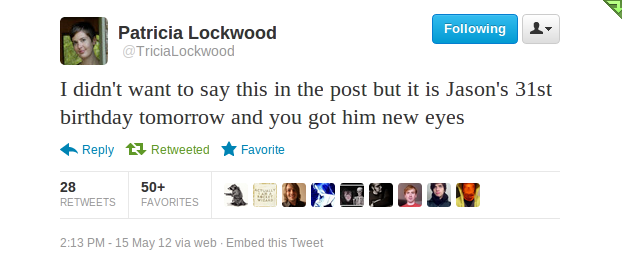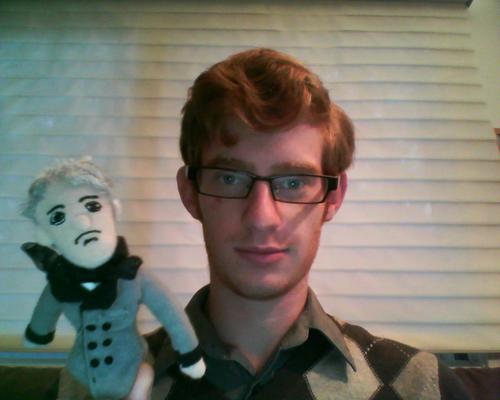It's not a stretch to say the tweet is a new poetic form, I would go so far as to say it's the dominant form of contemporary poetry. A writer can go from unknown to internet-famous with a handful of precisely chosen words. Fan communities can burst out of nowhere, creating poets out of robots or musing atheletes. But there's a structural problem: when poets sell books or get commissioned for readings, they (in theory) get material support in exchange for their work. In other words: even pro poets get paid. Tweeters, on the other hand, are making money for the blue bird alone. Twitter may be a compelling forum for poetry, but can it support its poets?
Perhaps no self-described poet has taken to the form as well as Patricia Lockwood. Though she's been published in some top-level mainstream outlets, Lockwood has received the most notice for her 140-character work. Her "sexts" drew the attention of the Huffington Post (not known for its poetry coverage), and HTML Giant called her the "Poet Laureate of Twitter." With over 10,000 unusually devoted followers reading her work every day (plus copious retweets), Lockwood might just be the most popular poet in the United States. But when crisis hit, it wasn't clear if she could turn that admiration into the support she needed.
Last week, Lockwood's husband was diagnosed with a rare form of cataracts and was going blind at 30. He would need a full lens replacement on both eyes, and fast. The cost: $10,000. Emergency medical expenses like this are a leading cause of bankruptcy in the US, and it's easy to see why: Who has 10 grand sitting around? Yesterday, Lockwood took to her blog with an appeal to her fans and a donate button:
"I posted about it on Twitter because I was basically losing my mind with worry and the outpouring of support was astonishing; people suggested that I do this so I am doing this because they wanted to help, which made me cry, and some quote about the color purple, if you walk past the color purple in a field and do not make it donate money to you so your husband can stop going blind, then you are being pretty mean to God.
(As I understand it.)"
The numbers make it sound easy, that's only a buck a follower! And people love her stuff! I sent $2 this morning, honestly more out of appreciation for her work than sympathy. But the conventional wisdom is that the sort of conversion of internet affection into cash, even for a good cause, is really difficult.
Well, the conventional wisdom should probably change:

The outpour was dramatic. Within 12 hours Lockwood had to shut down the button so as not to pull in more in donations than she asked for. This being Twitter, then came the jokes:

Of course I'm happy for Lockwood and her husband, but what interests me even more is the precedent this sets. How far are we from independent, reader-sponsored, professional tweeters? What if tweet-crews thought ahead and built emergency funds for situations like this one? Or even strike funds? We've just started exploring what's possible with this network beyond its code.









